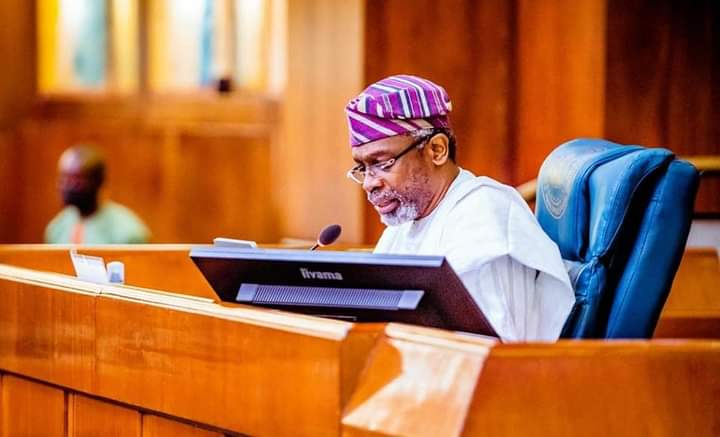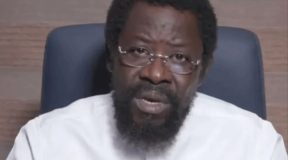The House of Representatives will re-introduce the Electoral Act (amendment) Bill on Wednesday for a speedy re-work.
It will again be transmitted to President Muhammadu Buhari for his assent.
Recall that Buhari had withheld his assent to the bill in December last year, giving some reasons, including the cost of conducting direct primaries by political parties and security challenges.
The Speaker of the House, Rep. Femi Gbajabiamila, announced this in plenary on Tuesday as he welcomed his colleagues back to work from the Christmas and New Year break.
Gbajabiamila explained that the re-work would be restricted to the controversial provision on direct primaries and any observed cross-referencing or technical issues in the bill.

He stated, “Therefore, the House will reintroduce the amendment this tomorrow (Wednesday). And we will work quickly to address the mitigating concerns, pass the bill and send it back to His Excellency, President Muhammadu Buhari for assent.”
However, Gbajabiamila still harped on the importance of direct primaries in strengthening democracy by allowing the power to pick political party candidates for elections to reside with the majority of party members.
He spoke further, “Now, let it be clear to all that our only objective in introducing that provision was to strengthen the foundations of our democracy so that it works for all of our nation’s people.
“The process by which political parties nominate candidates for election is essential, perhaps even just as important as the general election itself. A primary nomination process that deprives the majority of party members of the opportunity to choose who represents them in the general elections is susceptible to bad outcomes and ought to be fixed.”
He also said this was the reason all political parties must begin to build a comprehensive register of voters that should be updated on a periodic basis in order to put the power to elect leaders in the hands of the members.
The Speaker added that it would be unwise to let the entire bill go down the drain, taken that the next general elections would come up in less than 13 months.
He stated that many other provisions in the bill would ease the conduct of a more credible and transparent poll in 2023.
Gbajabiamila reminded his colleagues of the work left undone in the 9th House, saying that time was of the essence and appealed to them to double their efforts to ensure that the Legislative Agenda the House set for itself was exhausted.
He cited the amendment of the 1999 Constitution as one major work outstanding, urging members to redouble their efforts and complete the alteration in good time ahead of 2023.
The Speaker disclosed that the first set of constitution amendment bills would be forwarded to the 36 state Houses of Assembly by February (next month) for approval in line with the requirement of the procedure for amending the constitution.
However, Gbajabiamila praised his colleagues for the achievements the House had recorded so far, especially the interventions it made in several critical sectors and passing many important bills.
The Speaker noted, “The 9th House of Representatives, despite the limitations imposed on us by a global pandemic, has been an unusually productive parliament. We have taken legislative action to address longstanding challenges of governance and economics in our country.
“We have passed landmark legislation to fix our oil and gas industry, reform the police and re-organise the corporate administration system in our country.
“We have considered and passed meaningful legislation that impacts all areas of our national life. Some of these bills are the Police Service Commission Act (Repeal and Re-enactment) Bill, the Electric Power Sector Reform Act (Amendment) Bill, and the Deep Offshore and Inland Basin Production Sharing Contracts Act (Amendment) Bill, amongst others.
“Just before we adjourned in 2021, we passed a slate of bills to reform the aviation sector and clean up our airports so that these critical national assets can be properly administered to the best expectations of the Nigerian people.”
For publication of your news content, articles, videos or any other news worthy materials, please send to nnekatorti@gmail.com. For more enquiry, please call +234-706-806-4347 or whatsapp +234-706-806-4347. To place an advert, please call 07068064347.




